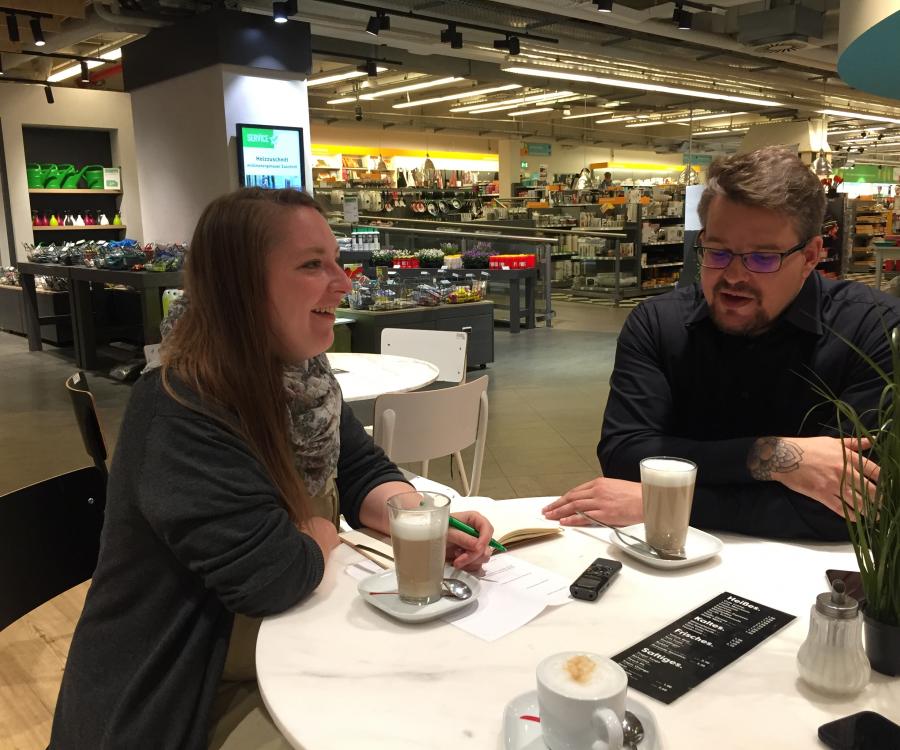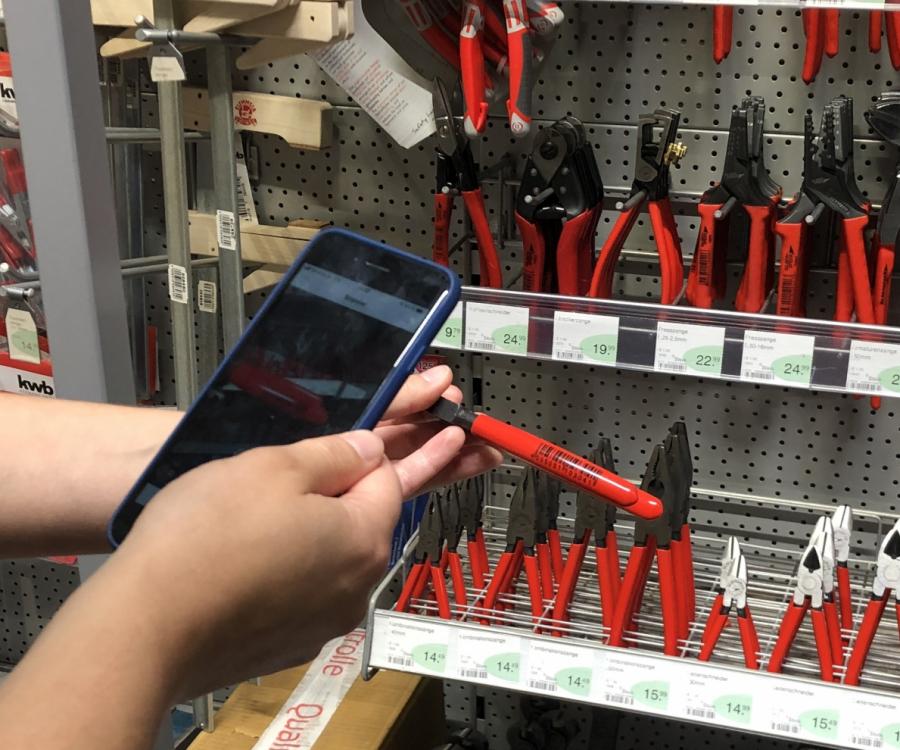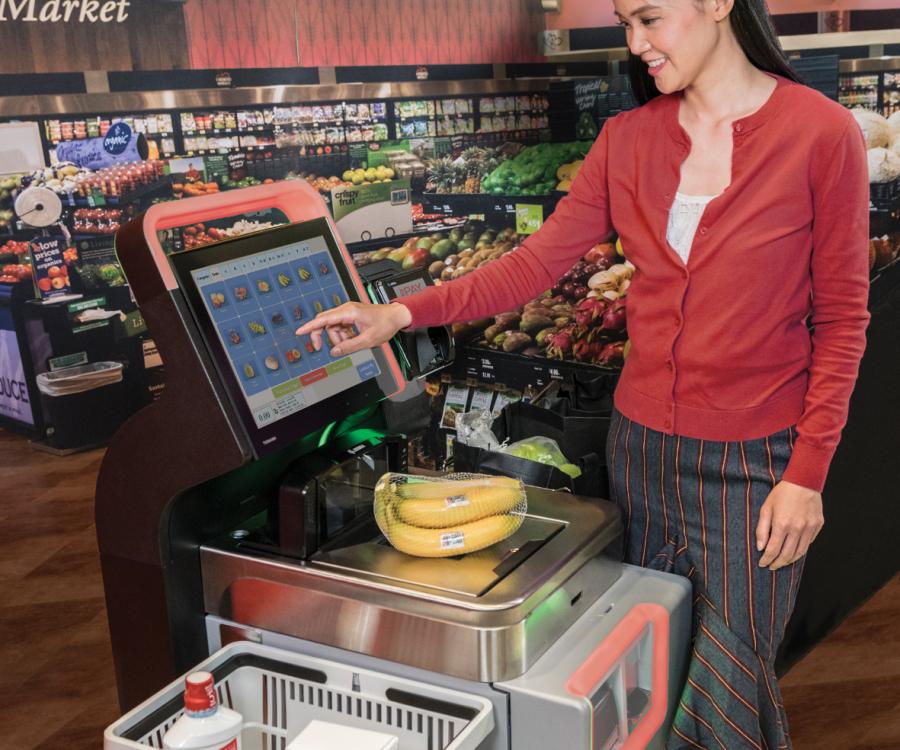China and the U.S. already feature cashierless stores but things are coming along in Europe, too. Several startup companies want to eliminate long checkout lines and advertise better retail security tags. We took a closer look at these "smart" security solutions.
Startups like rapitag and MishiPay want to revolutionize the retail shopping experience from the ground up. Thanks to smart tags, they not only aim to eliminate cash registers as we know them but also plan to enhance retail security. All companies pursue a similar strategy and focus on smartphones and stable internet connections.

Unlock and pay via app
Cashierless checkouts are not a new concept. Both Amazon and Alibaba already feature stores without cashiers. One problem here is dealing with the complexity of setting up an IT infrastructure and the drawback of only being able to pay with your smartphone. The products of the startup companies offer an intermediate step. They have taken the old retail security tag technology to task and revolutionized it. Thanks to the new hard tags, items can now be unlocked with a mobile app right at the shelf and taken home. This eases the workload for cashiers. In the best case scenario, employees can then use the freed-up time to provide in-store customer service for example.
Customer can check the inventory
Taking inventory is one of the more cumbersome tasks for retailers. They typically have to designate employees or hire external service providers to perform inventory counts. Automated inventory management via RFID chip is a popular method.
What’s more, the new companies have a secret advantage courtesy of RFID technology. The apps of the respective retailers allow customers to scan an item and check whether it is available in a different color or size. Customers can also use the app and have the item directly delivered to their home if the product is not available in store. To take advantage of the new tag features, retailers must operate an online store. Otherwise, it is not possible to implement this business concept.

Connecting offline and online
App users can use different payment methods like PayPal or ApplePay. So far, this was only an option in e-commerce, while offline retail had to take a back seat. Thanks to this connection, data can now be collected in the same way it is collected in online retail. This enables retailers to send targeted advertising and coupons even while the customer is still inside the store. If a customer scans the same item three times but chooses not to buy it, he or she can be swayed to complete the purchase with the right coupon before he/she leaves the store.
MediaMarktSaturn Retail Group has first-mover advantage in Germany
The consumer electronics retailer has jumped on the cashierless store bandwagon and has launched two pilot projects. The retailer has snatched up MishiPay and rapitag and made them a part of its in-house accelerator program. Saturn uses this program to support selected startups in new technology development. In collaboration with MishiPay, a pop-up store was opened in May in the Austrian state of Tyrol. By scanning the barcode, customers were able to buy products and subsequently deactivate the RFID chip. Once the anti-theft protection was deactivated, customers could then take their purchases and leave the store without the need to pay at a checkout. According to Saturn, the project was a big success. The security device primarily makes sense for less expensive products that are not sold in larger quantities.
Together with rapitag, Saturn has been testing "Saturn Smartpay" in Ingolstadt since September. Unlike in the case of MishiPay, a Bluetooth connection with a label called "Spider" is created in this scenario. It is designed to ensure that a packet cannot be opened. Once customers have paid via PayPal or credit card, the spider wrap opens as if by magic. The spider can then be reused again. The system is said to have paid off by protecting more expensive items.

Not brand-new – but more secure
These methods are designed to ensure the highest level of retail security since merchandise can only be opened by using an app. Every tag opening is stored in the system. This means retailers can identify who removed a tag, in addition to the time and place. This should make inventory discrepancies a thing of the past. The rapitag solution sends a unique identifier code to the security tag via Bluetooth after payment. The idea is to prevent manipulation of the payment process and thwart the product from being unlocked.
Improving the shopping experience
Companies like rapitag and MishiPay prove that Europe can keep up with the competition when it comes to cashierless payments. Most notably, the fashion industry and the consumer electronics retail sector can benefit from this facet. We will see more and more companies in the future emphasizing cashierless checkout systems to make the shopping experience better for their customers.










